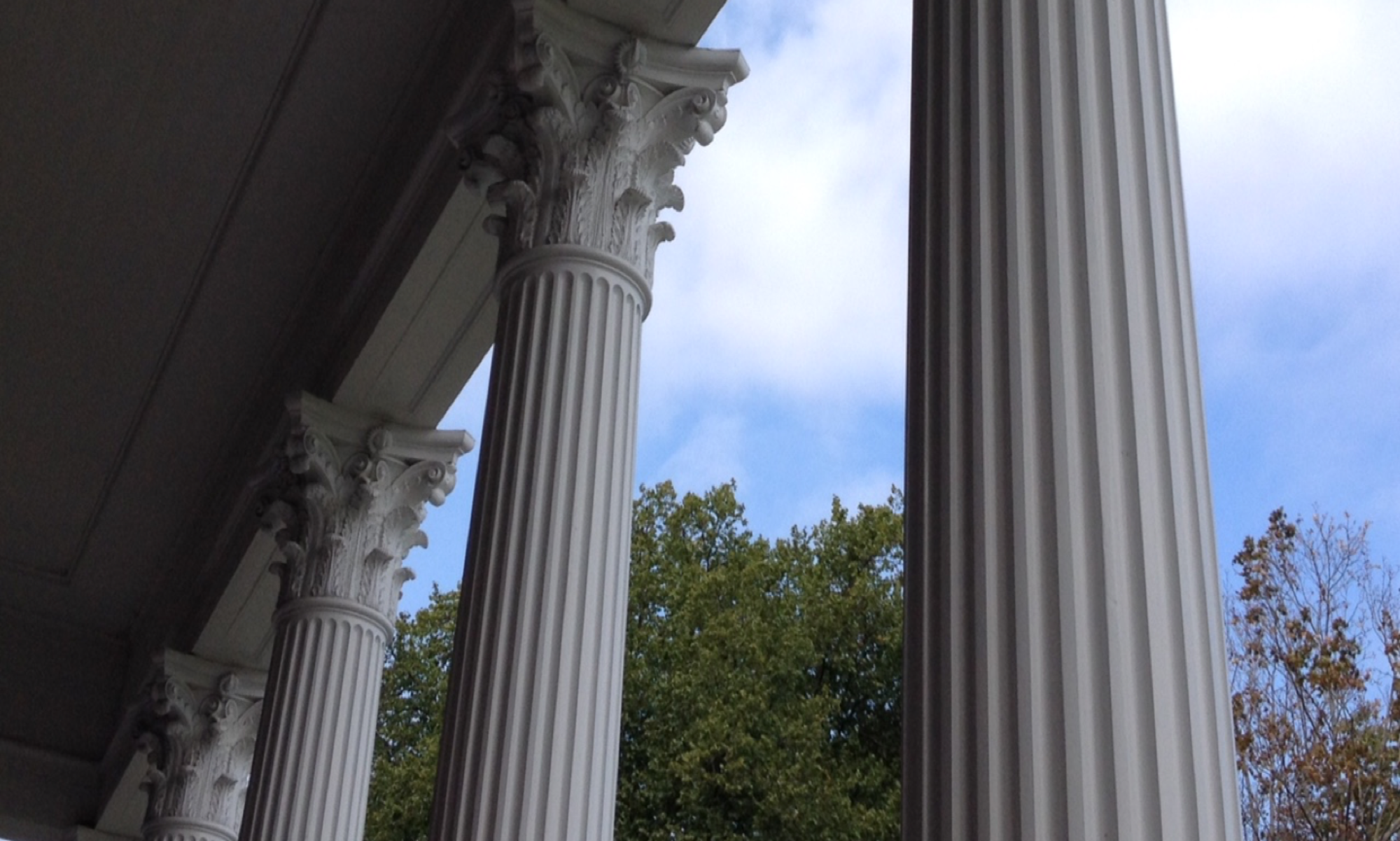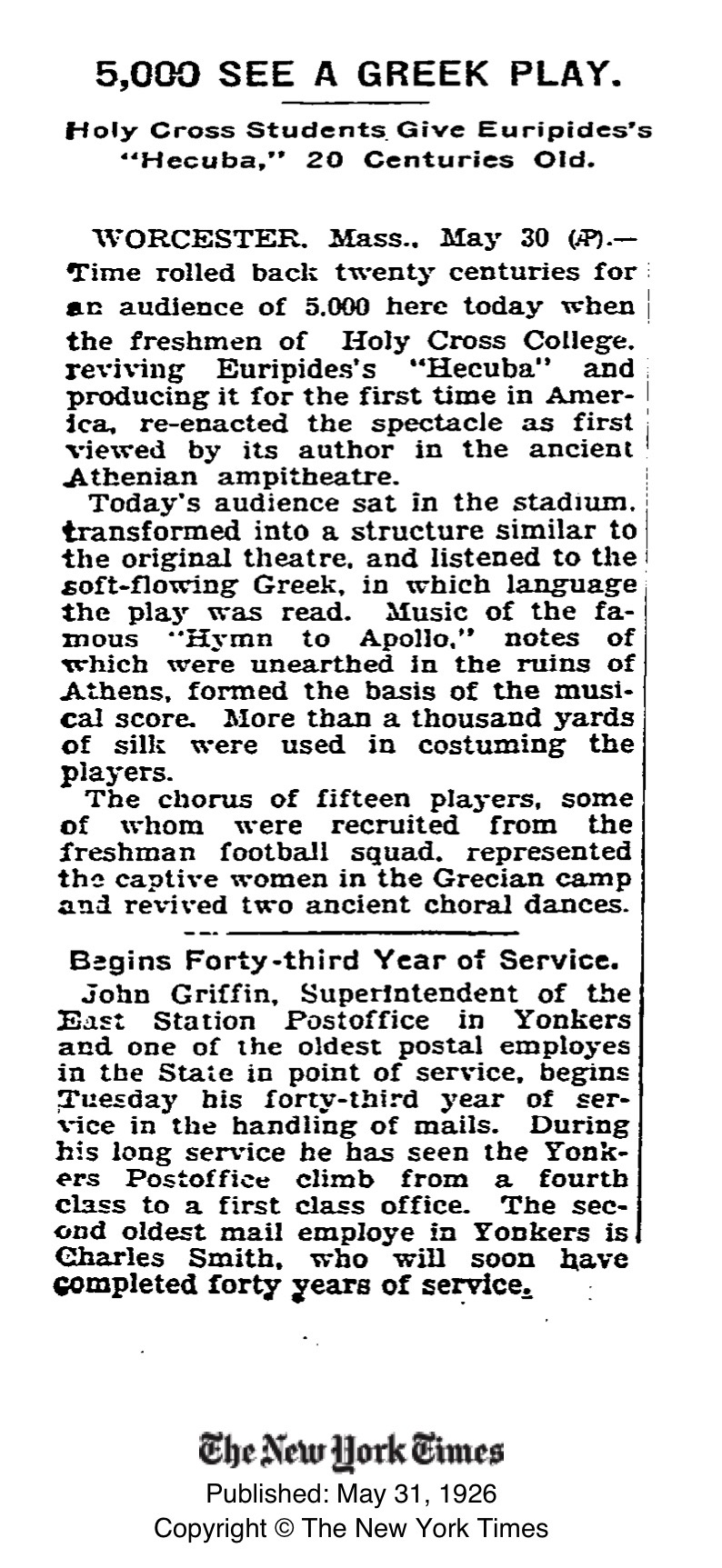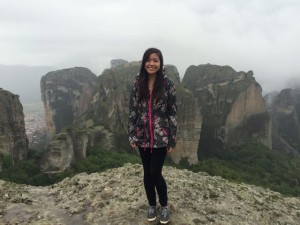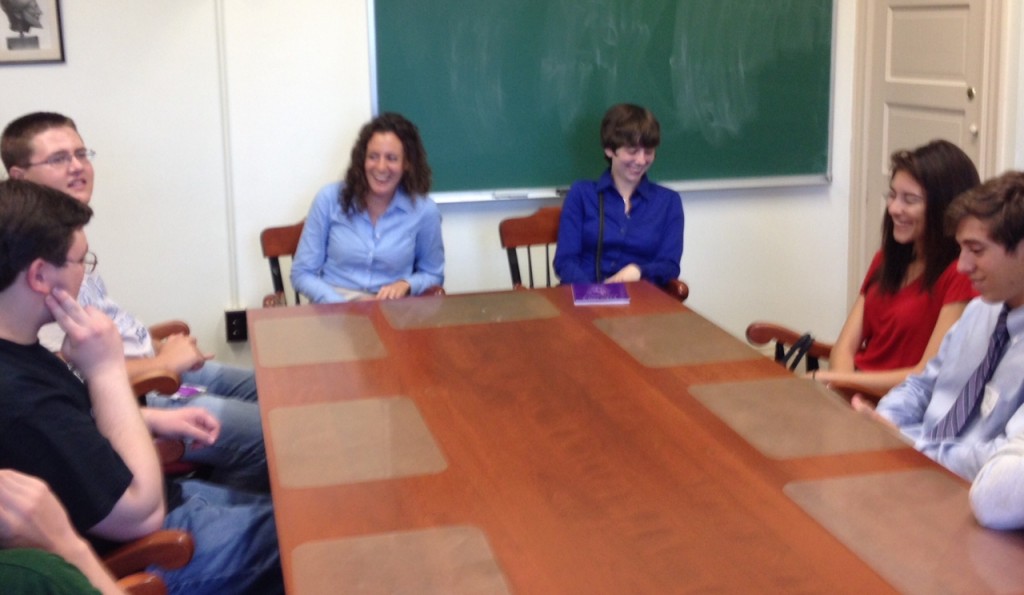Students and faculty from around the College gather to read the Gospel of John
Classics and Catholic Studies major Joe MacNeill is this year’s Fenwick Scholar, an opportunity awarded to one or two seniors each year to work on a yearlong research project. Joe’s Fenwick thesis, titled “God As Logos: A Philological, Philosophical, and Theological Investigation,” examines the relationship between language and liturgy, specifically through the lens of John’s Gospel, in which the Greek word logos is used to refer to God.
This fall Joe is also auditing Prof. Nancy Andrews’ advanced Greek seminar on the playwright Sophocles. And, after a few encouraging conversations with Prof. Andrews, Joe assembled a group of students and faculty to read the Gospel of John with him on Friday afternoons. “Joe occupied the driver’s seat in getting the group started,” Prof. Andrews said. “I had hoped that he would, since he is steeped in the material.”
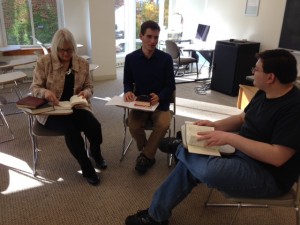
Of the group’s objectives, Joe said, “The reading group has two general goals. First, to facilitate discussion about the text with which I will be working for the duration of the year — the Gospel of John — a text that is not often read in its original Greek. Second, to bring together students and faculty from a variety of disciplines and with varying degrees of familiarity with Greek.”
In the handful of meetings this fall, the group of participants has included fellow senior Classics majors Meagan Freeze and Steven Merola, as well as Prof. Andrews (Classics), Fr. John Gavin (Religious Studies), Prof. John Little (Mathematics), and Prof. John Manoussakis (Philosophy). The group is open to more participants.
“We have all benefited from the interchanges between Joe and Steven Merola, who is writing a thesis on the early Christian theologian Origen,” Prof. Andrews said. “My role has been the interested interlocutor, with very basic questions. It is a stimulating and refreshing change of pace for me!”
The reading group is living up to and even exceeding Joe’s expectations. “After two meetings, we already achieved our goals by delving into the subtleties of the text with members from such diverse departments,” Joe said. “Discussion topics range from investigating the philosophical concepts underpinning challenging words as logos and phos, to understanding John’s use of verb tenses and moods. We have already found that the text is deceivingly difficult, with a simple grammar and vocabulary disguising a rich philosophical and theological tradition.”

